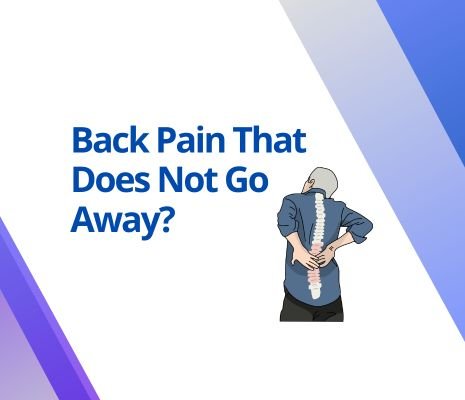Back Pain That Does Not Go Away? It Might Be a Spine Issue
Understanding Herniated Discs, Sciatica & When to See a Neurosurgeon
We all experience back pain from time to time—maybe after a long day at work or lifting something heavy. But what if your back pain just doesn’t go away even after weeks? If rest, painkillers, or home remedies aren’t helping, it might be more than just a regular ache. It could be a sign of a deeper spine-related problem.
When Back Pain Isn’t Just “Normal”
Occasional discomfort due to back pain is common, but persistent back pain—especially if it lasts for weeks or months—shouldn’t be ignored. Some signs that your back pain could be serious:
- It radiates down to your legs
- You feel tingling, numbness, or weakness in your legs
- Pain worsens when sitting or standing for long periods
- You’ve had a fall or injury recently
- There’s difficulty controlling your bladder or bowel
These signs may indicate a spine issue, such as a herniated disc or sciatica.
What is a Herniated Disc?
Between each bone (vertebra) in your spine, there’s a cushion-like disc that acts as a shock absorber. Sometimes, due to age or injury, this disc can bulge or “herniate” out of its place, pressing against nearby nerves. This can cause sharp or shooting pain in your back, buttocks, or even down your legs.
Understanding Sciatica
Sciatica refers to pain that runs along the sciatic nerve, which extends from your lower back down through your hips and legs. It’s often caused by a herniated disc putting pressure on the nerve. This pain can feel like burning, tingling, or a sharp electric shock.
When Should You See a Spine Surgeon?
If your pain is severe, persistent, or affecting your quality of life, consult a spine surgeon or a neurosurgeon—a specialist trained to treat conditions related to the brain, spine, and nerves. You may not always need spine surgery; sometimes physiotherapy or lifestyle changes are enough depending upon patients condition. But an expert’s opinion helps avoid complications.
Don’t ignore your back pain. Early detection and proper treatment can prevent long-term damage. If your pain isn’t going away, it’s time to get it checked—it might be more than just a strain.















